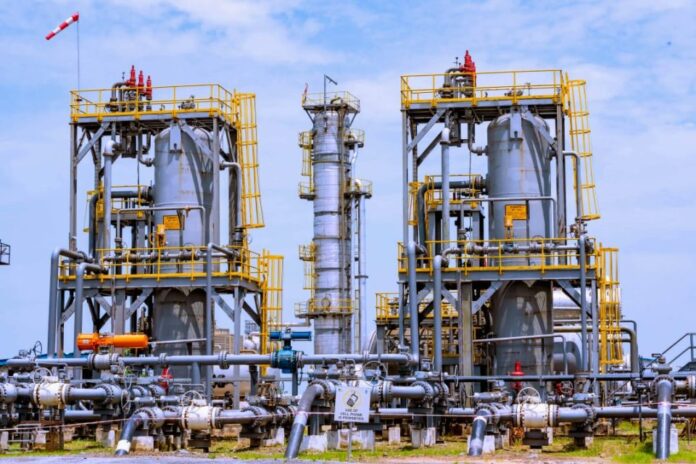The Federal Government has restated its resolve to ensure steady supply of crude oil to local refiners to meet domestic demands of refined petroleum products.
The Minister of State for Petroleum Resources (Oil), Heineken Lokpobiri, who gave the assurances at the second Nigeria Refining Summit held in Lagos, with the theme ‘Refining – Key to Energy Security in Africa’, said government would end Nigeria’s dependence on imported petroleum products, pledging sustained crude supply, policy incentives, and full regulatory support to indigenous refiners to achieve national energy security and regional market dominance.
Lokpobiri said the government is determined to guarantee feedstock security for all licensed refineries and strengthen the Domestic Crude Oil Supply Obligation to ensure that every barrel produced in Nigeria contributes to both domestic demand and export commitments.
“Beyond licensing, government has continued to consolidate on facilitating the access to crude oil supply through the effective implementation of the Domestic Crude Oil Supply Obligation; this is because no nation can claim energy independence if it cannot refine its own crude. The Federal Government is therefore committed to ensuring that every barrel produced in Nigeria contributes to meeting both our domestic and international obligations,” he said.
The minister announced that the naira-for-crude sales policy would be sustained to cut production costs, limit exposure to foreign exchange volatility, and strengthen local operators’ competitiveness.
He stated further that the oil industry has seen indigenous success stories such as Dangote Refinery & Petrochemical, Waltersmith Petroman Refinery, Aradel Holdings, etc. which collectively demonstrate that Nigerians have both the capacity and the will to refine Nigeria’s crude oil locally.
These projects are more than facilities; they are symbols of confidence in our policy direction, and the country is committed to replicating them across all oil-producing states.
The Minister said through the Nigerian Midstream and Downstream Petroleum Regulatory Authority (NMDPRA), the government has streamlined the licensing regime; from licence to establish to construct and operate — ensuring that genuine investors are supported, not hindered, by bureaucracy.
He said beyond licensing, government has continued to consolidate on facilitating the access to crude oil supply through the effective implementation of the Domestic Crude Oil Supply Obligation (DSCO); this is because no nation can claim energy independence if it cannot refine its own crude.
The Federal Government is therefore committed to ensuring that every barrel produced in Nigeria contributes to meeting both the country domestic and international obligations.
Lokpobiri added that as part of deliberate policy and broader strategy, the naira – for crude sale agreement will continue to be a major step to reduce cost of fuel production, mitigate the exposure to the fluctuating exchange rate and of course to generally support indigenous refining.
Lokpobiri was of the view that in the bid to extending refining obligation beyond the shores of Nigeria, the country has launched West African Fuel Reference Market to position Nigeria as a regional refining and product supply hub to other West African subregion.
With increased local refining capacity, Nigeria will not only meet its domestic demand but will also serve as a dependable supplier of refined products to neighbouring countries, hence reducing the region’s reliance on distant refineries and maritime imports.
This aligns with the African Union’s vision for energy integration and intra-African trade under the African Continental Free Trade Area (AFCFTA).
The Minister said as the country looks ahead, its priorities are clear:
Ensure feedstock security for all licensed refiners; deepen fiscal incentives to attract more investment. Enhance collaboration between the Ministry, NMDPRA, NUPRC, and security agencies to tackle crude theft, pipeline vandalism and while enhancing our relationship with the host communities.
Foster collaboration among African nations for product exchange, logistics, and shared energy infrastructure.
Lokpobiri believed that the path to Africa’s energy security runs through the gates of its refineries and its interrelated institution.
The Minister said the Federal Government remains fully committed to supporting indigenous refiners, strengthening regulatory institutions, and creating an enabling environment for sustainable downstream growth.
He said CORAN Summit 2025 serves as a renewed call – to industry players, regulators, investors, and policymakers to unite in achieving an Africa that refines what it produces and powers its future through its own resources.
Also speaking, the Chief Executive of the Nigerian Upstream Petroleum Regulatory Authority (NUPRC) Gbenga Komolafe, who was represented by Boma Atiyegoba, an official of the Commission, stated that the NUPRC was doing its best to make crude available to local refiners.
Komolafe stated that the NUPRC works with the Nigerian Midstream and Downstream Petroleum Regulatory Authority (NMDPRA) to get the crude requirements for local refineries, and this is done on a half-yearly basis.
“When that is done, there is a metric that is developed by the Commission and agreed upon by all the stakeholders that is used to allocate the volumes that are expected from the different oil and gas producers for the domestic oil supply obligation. Now, this oil supply obligation is not a request; it is a regulatory obligation to help improve our energy security in Nigeria.
“So, when we get the allocation, we distribute it accordingly to the companies, and we use parts of their production forecast and other indices to determine the volume that we allocate to the companies. When that is done, what we do further is to enforce the obligation,” Komolafe said.

